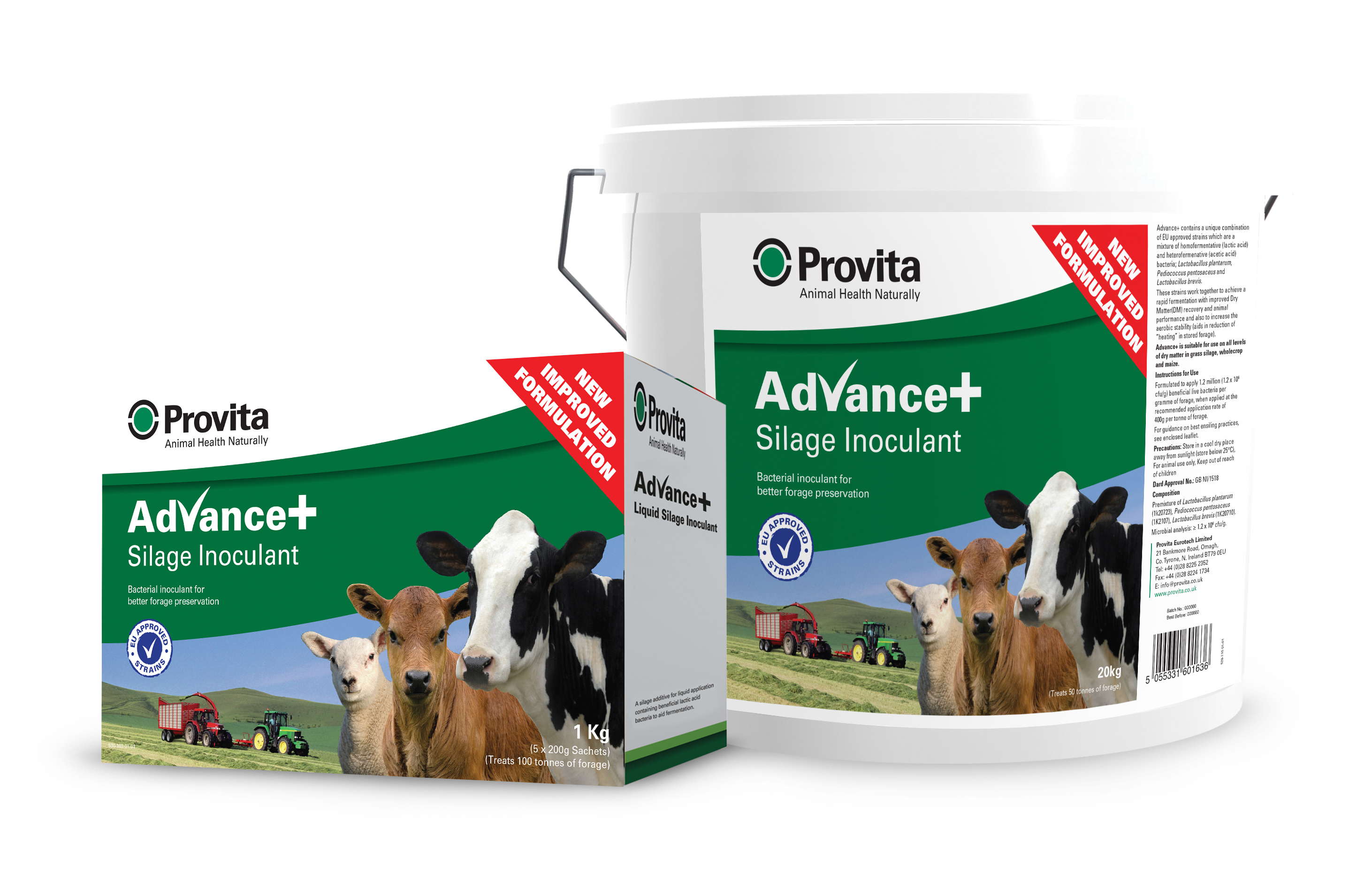Grass testing carried out by Provita on swards this week has confirmed that, in all cases, farmers could get on with their silage making operations with every expectation of making high quality forages.
“We test for Nitrogen, sugar and dry matter levels,” explained the company’s Tommy Armstrong.
“And it really is a case of what a difference a few days can make. On Tuesday of this week, most grass samples taken had a dry matter content of around 20%, increasing to 25% and 30% after respective 12-hour and 24-hour wilts. The strong wind earlier this week has dried out the grass and ground surprisingly quickly. I was able to determine this by walking several fields on several farms, I would encourage farmers to do this on their own farm.”
“Sugar levels are currently ranging from 3.5% to 4.0% in fresh grass samples. This figure will be three to four times on the dry matter analysis. Adding to the good news is that nitrate levels are low, so ammonia levels will also be low in these silages. As a consequence, farmers who made first cut silage this week have every prospect of benefiting from high quality crops next winter, this is essential for farmers aiming for better maximum feed efficiency.”
He added:
In total contrast grass samples taken the previous week were low in terms of their dry matters. Sugar contents were hardly registering and nitrate levels were quite high.
Armstrong also confirmed that silage crops made this week would not have been heavy yielding.
“But this will be made up for in the second cut,” he stressed.
Provita is offering farmers a free grass testing service.
Tommy Armstrong again:
“We are using AFBI to carry out the required analysis service. The test results will be back with farmers within 24 hours of the test being taken. We will also test for protein and energy on farms where we are doing mini silo tests.”
The weather for the week ahead is forecast to be changeable, therefore testing is essential to know if the crop can be cut.
“Ultimately weather will have the biggest influence on forage quality, however good management and the use of an inoculant that has been fully designed and tested in Northern Ireland’s conditions, such as Provita Advance+ will also help.”
